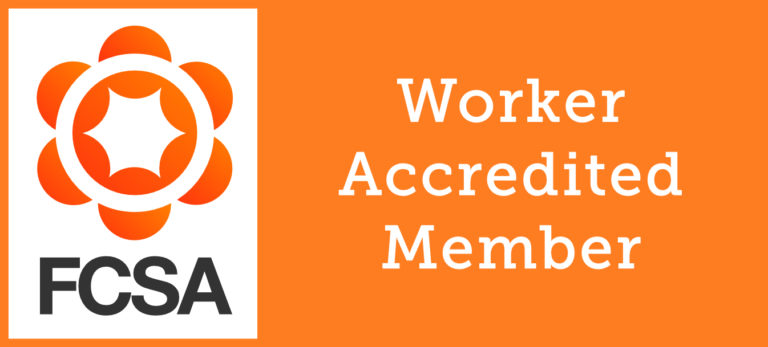
Whilst teaching consistently ranks highly on the list of the most stressful professions, the past year has been especially challenging for educators. From remote learning and the added pressure of catch-up and intervention services following national lockdowns, to confusion and impacts to student mental health following changes to A-Level assessments, teaching professionals have had to be more resilient and innovative than ever before.
With Covid-19 continuing to affect education in 2021, many supply teachers are understandably anxious about the additional pressures they will face in the year ahead. Generate are proud to support thousands of teachers all over the UK – here are our four top tips to help supply teachers avoid burnout.
4 Ways Supply Teachers Can Reduce Stress
1. Spot Burnout Before It Happens
Having an objective view on your own state of mind is difficult at the best of times, but pausing to slow down and reflect on how you’ve been feeling is key to preventing burnout before it happens. Write a diary or make a checklist of your feelings to paint a picture of your current mental wellbeing, that you can then reflect on to identify patterns in your feelings and the causes behind them.
Emotional signs of burnout can include:
- Feeling tired or fatigued most of the time
- Feeling panicked or overwhelmed by small/common tasks on several occasions
- Lacking energy or motivation
- Boredom or frustration with the majority of your daily activities
- Ambivalence or lack of interest in your job or activities you usually enjoy
- Feeling as if your work or hobbies are ineffectual or not worth doing.
Your actions towards others are often harder to analyse objectively, especially in the face of conflict and during behaviour management in class. However, as the best teachers know, students will respond most positively to calm, consistent teaching methods and will ultimately thrive under the teaching of a happy, confident educator who can effectively manage their own stress.
Behavioural signs of burnout can include:
- Withdrawing from responsibilities
- Isolating yourself from other people
- Taking out your frustrations on other people, for example snapping, raising your voice unnecessarily or overreacting to a small inconvenience
- Interrupting others
- Nervous habits such as biting your nails or repeatedly tapping your pen
- Becoming easily offended or tearful when in conversation with colleagues, Heads or Principals
- Problems with reliability or punctuality, such as calling in sick, reneging on commitments or repeatedly turning up late or leaving school early without just cause.
Once you have identified patterns in your feelings and the reasons behind them, you can begin to avoid unnecessary triggers for negative feelings and behaviours, and develop coping strategies for those that are unavoidable.
2. Plan & Control What You Can
Supply teachers experience an additional layer of stress due to the nature of the job. Whilst others in your network can plan lessons down to the finest detail for many weeks and months ahead, the demands of a supply teacher can vary daily and each new challenge can be impossible to predict. Without weeks, months or even years building relationships with the same students and their families, behaviour management and supporting vulnerable children can be especially stressful.
Whilst you may not be able to plan for every eventuality, an effective strategy to prevent burnout in teachers is to focus on what you can control. Create templates for your lesson planning so that, when you have time to prepare for a new job, planning for any lesson is as efficient as possible and utilises techniques that have already been useful to you in previous lessons. Practice a breathing technique to use before you enter a new classroom for the first time, and experiment to find the perfect introductory conversation or activity that you can adapt to start off every new class in the right way.
Even the best teachers have bad days, and there will inevitably be situations that surprise you or make you feel overwhelmed. Without the physical space of your own classroom or supply cupboard that permanent staff often enjoy, think about how you can create your own space of safety and calm on your breaks and when you need a moment to yourself. If you don’t have a car and familiar places such as your home, parks or shops are too far away from your current school, you can create your own space outside wherever you go. Download a map with walking routes on your phone and get into the habit of walking outdoors: knowing that you have a coping strategy planned will help get you through to the end of a difficult conversation or situation, and you can deal with your negative thoughts or feelings when outside before readying yourself for the next class.
3. Support Your Work with a Positive Lifestyle
A healthy lifestyle can benefit everyone with any career, but the long hours of marking, planning and training – and increasing requirements to support vulnerable children and their families – in addition to classes can make it harder for those in the profession to prioritise their own wellbeing. Looking after your mental and physical health can be the most effective strategy to prevent stress from taking over your life – and small changes can make a big difference.
The following activities have been proven to reduce the risk of burnout for those in high-stress career paths:
- Being Present – Instead of carrying your stress and anxieties around the you, consciously try to ‘be present’ a few times every day. Often known as mindfulness, being present can help you focus on the task at hand, how you are feeling and what you and others need in the current situation. Being present will ensure you can be an active listener for your pupils, help you shake off negative thoughts or feelings before they begin to affect you, and allow you to take a step back from an overwhelming workload to calm down and ready yourself for your next action.
- Meditation – Just five minutes a day can be easily built into any routine and can slow down your heart rate and anxiety levels to prepare for a potentially stressful situation. Downloading an app like Headspace can empower you to meditate wherever you are and whenever you have the time, making it ideal for busy supply teachers who are often travelling.
- Exercise – Doctors recommend two and a half hours of exercise per week. Although this sounds daunting for those with a hectic schedule, your exercise can be split into as many segments as you like – even for ten minutes at a time – to fit around your day, with short, high-intensity workouts proving just as effective for physical and mental health when done often. Finding what works for you is the key to unlocking physical and mental benefits: yoga, dancing, swimming, strength training and walking all count as exercise.
- Being Kinder to Yourself – Changing your thought patterns won’t happen overnight, but can help you become more resilient, feel happier and skyrocket your self-esteem. Catching negative thoughts and challenging perceptions of yourself and your abilities – for example, turning ‘I can’t do this’ into ‘I might be able to do this if I try…’ – can help you create a positive outlook and reduce panic attacks in as a little as a week. Focus on learning from bad experiences rather than beating yourself up about what you did wrong, and reward yourself with a fun activity when you achieve something big or small. Investigating online therapy or speaking with mental health charities like Mind could also help stressed teachers through lockdowns and social distancing restrictions.
4. Get Support from Your Recruiter and Umbrella Companies
Whilst long-term and permanent teaching staff can count on the support of their Heads and Principals or rely on an uplifting catch-up with friendly colleagues in the staffroom, the support network for supply teachers is often smaller or more difficult to access.
Your recruitment consultant can become a vital point of contact and support for both personal and professional concerns. The best recruiters know that their success relies on the job satisfaction and happiness of their contractors – call your recruiter when you’re in need, and they will be happy to speak with your employer on your behalf, talk you through your legal rights and options, and help you put processes in place for your mental and physical wellbeing.
Your umbrella or payroll agency can often help with much more than pay. Your provider can offer you advice on tax, compliance and legal changes, and a provider who specialises in the education sector will have a wealth of knowledge and experience to give you personal guidance in your current situation.
Find a New Payroll Agency
Generate support over 6,000 employees every week. Find out more about our industry-leading contractor payroll solutions.











